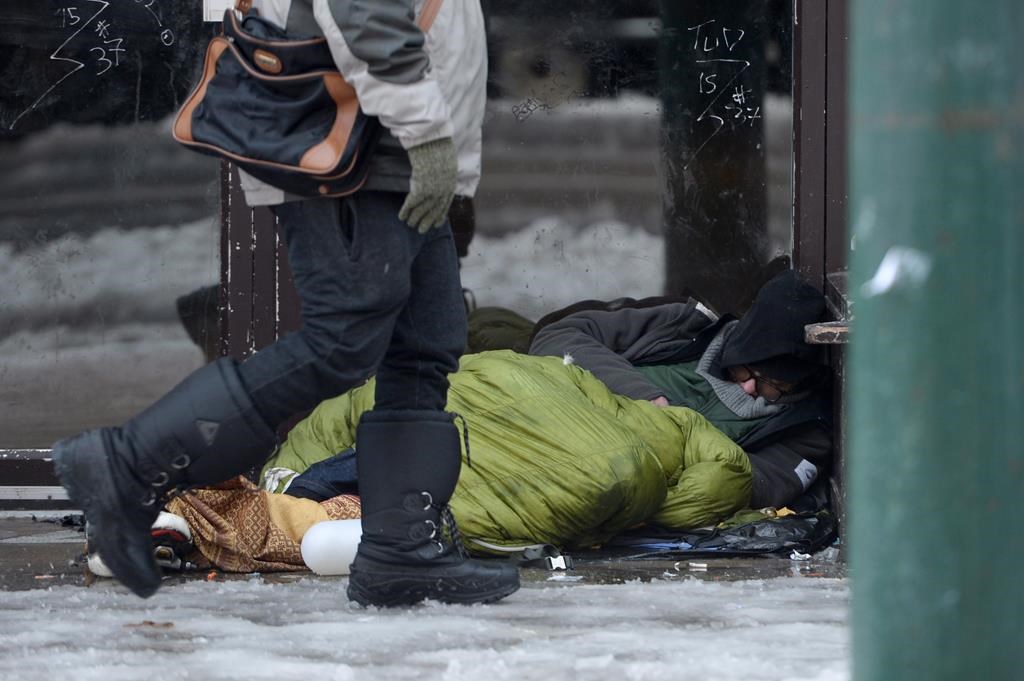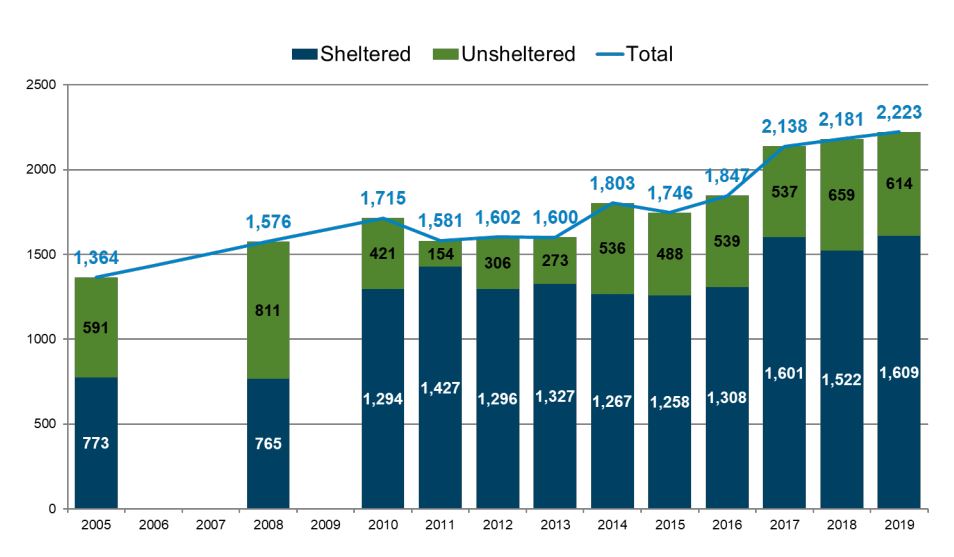The number of people experiencing homelessness in Vancouver has hit its highest level in nearly two decades, the latest homeless count shows.

The early results of the count released Wednesday identify 2,223 homeless people living in Vancouver, marking the highest number since the survey began in 2002.
This year’s number is up two per cent from 2018, when 2,181 homeless people were identified. It’s also the fourth year in a row that has seen an increase, despite a recent push from council to address homelessness in the city.
WATCH: (Aired March 12) Vancouver begins 2019 homeless count

“I’m devastated by it,” Vancouver Mayor Kennedy Stewart said about the results, which are the first he’s overseen since being elected to office.
“This has been an issue that’s been top of mind for many councils over the last decade, and I think we’re just starting to see it stabilize.”
Stewart said the increase appears to be on track not only with the rise in Vancouver’s overall population, but also in Canada’s overall homeless numbers, proving the problem may be cresting after years of work.
But he added more work needs to be done.
“We can’t underestimate how devastating homelessness is for those who are affected,” Stewart said. “These folks are extremely vulnerable and they need our help.”
WATCH: (Aired Nov. 9, 2018) Housing crisis leaves many homeless living in vehicles in Metro Vancouver

Roughly 400 volunteers took to the streets over two days in March to count the number of people sleeping on the streets and staying in emergency shelters.
Those people were asked how long they had been without a home along with their age, gender and ethnicity. The survey was voluntary and those who responded were kept anonymous.

Get daily National news
More than 80 per cent of the homeless population were found living downtown or in the Downtown Eastside, where 62 per cent of the population was found alone.
Those who have been experiencing homelessness for more than a year rose to 56 per cent, up from 34 per cent in 2018. The number of people who said they have been homeless for six months or less went slightly down, however, from 31 per cent in 2018 to 27 per cent this year.
Just over 80 per cent of those surveyed said they already lived in Vancouver before becoming homeless.
The survey also found 39 per cent of the homeless population identified as Indigenous, despite the 2016 census finding Indigenous people make up just 2.2 per cent of the overall population in Vancouver.
Less people on streets despite overall rise
While those numbers and the overall increase are concerning, there are some bright spots within the results.
The latest count found 614 of those who were identified as homeless were unsheltered and living on the street — a nearly seven per cent drop from 2018, which counted 659 people on the streets.
Stewart said the drop is proof that council’s push to create more modular housing projects in the city is getting more people indoors.
“We’re really proud of the work staff and our partners, especially in the non-profit sector, are doing in making these projects a reality,” he said.
The city said a total of 606 temporary modular housing units have been opened and occupied since the start of 2018. Last year also saw more than 930 social and supportive homes built.
WATCH: (Aired Dec. 15, 2018) Dramatic fire in downtown Vancouver shows dangerous homeless conditions

The mayor said he was pleased the provincial government and other municipalities in Metro Vancouver are investing in more housing projects aimed at low-income residents to get them out of shelters and off the streets.
But the former MP for Burnaby-South also pointed a finger at the federal government for not following through on promised funding for projects designed to cut homelessness in half across Canada.
“There’s been a few little drips and drabs, but nothing really substantive and nothing that would go towards where we need to go,” he said. “That’s the real missing piece.”
Jeremy Hunka with the Union Gospel Mission said the rising number is hard to take.
“We know people who are homeless have more chance of dying and usually live shorter lives than those who are in housing,” he said. “Any increase, no matter how slight, is devastating.”
Hunka said he was hoping to see a decrease after years of rising numbers, but said affordability and high rents are continuing to drive people out of their homes.
“A thousand people per year in Vancouver are falling into homelessness, and that’s really hard to take,” he said.
“We need to put the pedal to the metal and accelerate programs that are already working, like modular housing and social housing. We need thousands more units on the lower end of the rental scale so people aren’t getting pushed into homelessness.”
More detailed results on the homeless count are expected to be released in the months ahead.
Homeless counts have been conducted annually in Vancouver since 2010. A province-wide and federal count are both planned to take place next year.









Comments
Want to discuss? Please read our Commenting Policy first.